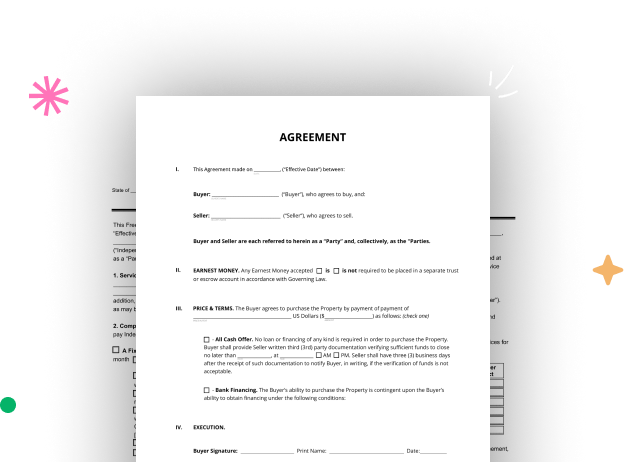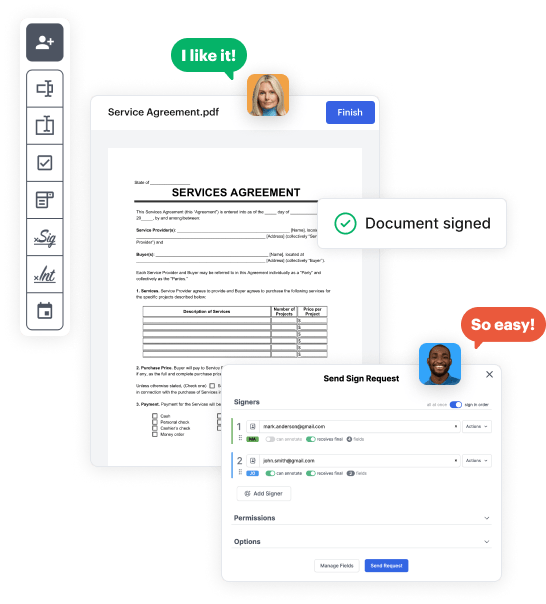

Go to the DocHub website and register for the free trial. This provides access to every feature you’ll need to build your New Jersey Warranty Deed Form with no upfront cost.
Log in to your DocHub account and proceed to the dashboard.
Hit New Document in your dashboard, and select Create Blank Document to craft your New Jersey Warranty Deed Form from the ground up.
Place different elements such as text boxes, radio buttons, icons, signatures, etc. Arrange these fields to suit the layout of your document and assign them to recipients if needed.
Rearrange your document in seconds by adding, repositioning, deleting, or combining pages with just a few clicks.
Convert your freshly designed form into a template if you need to send many copies of the same document numerous times.
Send the form via email, share a public link, or even post it online if you wish to collect responses from more recipients.